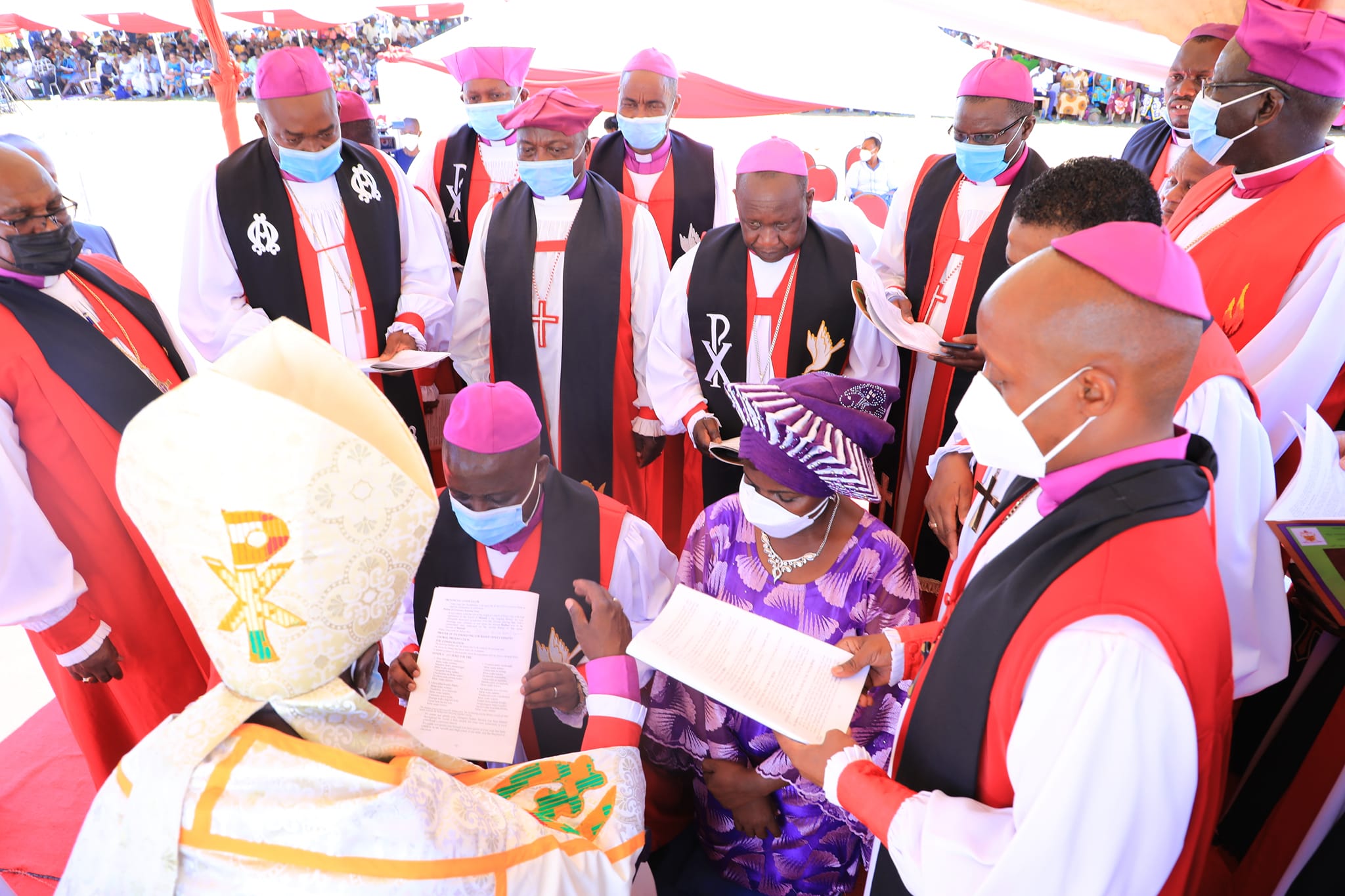Ack Diocese Of Malindi

A great part of the history of the Anglican Church in Kenya coincides with the history of the Diocese of Mombasa founded in 1898. This was the starting point of the development of the church in the territory which came to be called Kenya. Previously, the areas had been part of the Diocese of Equatorial Africa and earlier still the coast missions had been under the jurisdiction of the Bishop of Mauritius. From 1898 the Diocese covered part of Tanganyika (German East Africa) and what was then the East African Protectorate, which, up to 1925, included the area called Jubaland, now part of Somalia. When in 1902 the Eastern Province of present-day Uganda was ceded to the Protectorate, the thriving church in Kavirondo remained under the Diocese of Uganda..
It is from the Diocese of Mombasa that all the 38 Dioceses of the Anglican Church including one military episcopate were established. It covered the former coast province until 1993 when it was sub-divided into two namely Taita Taveta and Mombasa. In 2015 it was further split into two Malindi and Mombasa.
The Diocese of Malindi was formally inaugurated in 2015, a significant year for Anglicans in the region. The inaugural ceremony saw the installation of the first diocesan bishop, The Rt Rev Lawrence Kavutsu Dena, marking a pivotal moment in the church’s mission to strengthen its presence along the coast.
The consecration was led by none other than Archbishop Eliud Wabukala, then the Anglican Primate of Kenya. His presence underscored the importance of this new diocese within the wider ACK framework. Bishop Dena’s leadership focused on establishing foundational structures, both spiritual and administrative, to serve the growing Anglican population in Malindi and its surrounding areas.
Today, the diocese thrives under the stewardship of The Rt Rev Dr Reuben Shukuru Katite, who currently serves as the diocesan bishop. Bishop Katite has brought a fresh wave of energy, vision, and mission to the region, blending evangelical outreach with community development.
In April 2023, he led the Malindi Mega Mission, a diocese-wide initiative that mobilized churches for evangelism, discipleship, and acts of service. This event wasn't just about preaching—it was about presence: being there for the people in practical, transformative ways.
Later in 2024, Bishop Katite spearheaded the launch of the Malindi Community Development Trust at St Andrew’s ACK Cathedral. His focus? Empowering congregants through financial literacy, economic upliftment, and sustainable development programs—a modern reflection of Christ’s call to love, serve, and uplift.
From its establishment in 2015 to its current vibrant ministries, the Diocese of Malindi continues to build on a strong spiritual heritage. Rooted in the broader history of the Anglican Church of Kenya, it remains deeply committed to serving both God and the local community.
The journey of the Diocese of Malindi is far from over. As new challenges and opportunities arise, its story will keep unfolding—one prayer, one mission, one life at a time.
The management of Diocese's day-to-day operations is carried out under the supervision of the Bishop. The Bishop provides oversight to the Diocese through the Vicar General, Registrar and The Administrative secretary. Legal custody of Diocese's property is entrusted to the Church Commissioners of Kenya.
A holistic transformation Church proclaiming the gospel of Christ.
To equip and empower society through evangelism, discipleship and economic transformation
In all our work we commit ourselves to be participatory, democratic, honest and trustworthy and we will be in the forefront to uphold Christian values in areas of our work and beyond. We also up hold self–criticism and monitoring and evaluations as methods to revitalize ourselves. Our core values include the following:
1. Team Work
2. Integrity (Transparent, Accountability, Stewardship)
3. Respect to diverse
4. Gender Equity
5. Honesty
6. Compassion
7. Biblically grounded
The challenge now is to internalize and mainstream these values in the day-to-day life and operations of the Diocese.